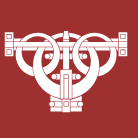Detailed introduction of Riga Graduate School of Law:
Introduction and Overview
Riga Graduate School of Law is an autonomous law school located in Riga, the capital of Latvia. It provides undergraduate, master's and doctoral legal education in the Baltic region. It is one of the important legal education institutions in the region. Its education quality and academic level are highly recognized in Latvia and surrounding areas.
History and Establishment Time
The school was established in 1998 by an international agreement signed by the governments of Latvia and Sweden and the Soros Foundation. In 2004, it began to recruit students from all over the world. In 2005, according to the agreement between Latvia and Sweden, it became an independent autonomous institution of the University of Latvia, of which 76% of the shares held by Latvia and Sweden were transferred to the University of Latvia, and the Latvian branch of the Soros Foundation retained 24% of the shares.
School Strength
Faculty: It has a faculty of 68 academic staff, including resident professors, visiting professors, lecturers and legal practitioners from Europe and the United States. For example, Professor Ineta Ziemele is an expert in international public law and human rights law, a judge of the European Court of Justice, and the former president of the Constitutional Court of Latvia; Professor Ilze Rūse is the Jean Monnet Chair Professor at the Riga Law School, who is funded by the European Union to strengthen academic education in EU studies and teaches EU decision-making system law.
Teaching Resources: As an independent autonomous unit of the University of Latvia, students can share some teaching resources of the University of Latvia. At the same time, the school itself is equipped with modern teaching facilities to meet the needs of legal teaching and research, such as professional moot courts, etc., to provide students with opportunities for practical operation and help students better master legal practice skills.
International Cooperation: Actively carry out international exchange and cooperation projects, and establish cooperative relations with many universities and institutions in Europe and other parts of the world. Through projects such as Erasmus+, the international mobility of students and teachers is promoted, providing students with a broad international perspective and opportunities for exchange and learning, and improving the internationalization level of the school.
Nature of the school
Private autonomous law school.
Educational philosophy
Aims to provide high-level legal education, adopt a research-based teaching method, focus on cultivating students' legal thinking ability and practical operation ability, enable students to understand and apply legal knowledge from an interdisciplinary perspective in a constantly changing and interconnected world, and lay a solid foundation for students' future career development or academic research in the legal field.
Key laboratories and disciplines
Key disciplines: The school's key disciplines cover international public law and human rights law, EU law, and law With finance, technology law, cross-border (international) commercial law and other fields, these disciplines are closely integrated with the hot and cutting-edge issues in current legal practice, with strong practicality and pertinence, and can meet students' different learning interests and career development needs.
Practical teaching: Although the key laboratory is not explicitly mentioned, the school emphasizes practical teaching. Through close cooperation with the legal practice community, it provides students with practical teaching links such as internships, case analysis, and mock courts, so that students can deepen their understanding and application of legal knowledge in practice and improve their ability to solve practical legal problems.
Department Settings
Undergraduate Department: There are two undergraduate majors, Law and Business, and Law and Diplomacy, both of which are three-year English-taught courses. The Law and Business major covers international, comparative and European law, as well as economics, finance, marketing and management related issues; the Law and Diplomacy major involves law, economy and international relations.
Graduate Department: It offers multiple master's degree programs, including master's degree programs in international and European law, law and finance, public international law and human rights, cross-border commercial law, EU law and policy, and intensive courses in European law and economics. These courses focus on cultivating students' professional qualities and research capabilities in specific legal fields, providing strong support for students to further their studies or engage in related legal work.
Ranking
The specific ranking of the school in the comprehensive ranking of international authoritative universities has not been found, but as an important part of the University of Latvia, it has a high reputation and influence in the field of legal education in Latvia and the Baltic region.
Fees **: No clear and unified tuition standards for the school have been found, but the tuition fees of private institutions are generally relatively high, and may vary depending on factors such as majors and degree levels.
Campus
Campus location: Located in the center of Riga's new art district, in the core area of the Baltic region, with a strong cultural atmosphere and convenient transportation, it provides a good environment for students' study and life.
Campus facilities: The campus building has a unique style and complete internal facilities, including modern teaching buildings, libraries, conference rooms, etc. The library has a rich collection of legal professional books, academic journals and electronic resources, which provides strong support for students' study and research. In addition, the school is also equipped with advanced information technology facilities to meet the needs of teaching and learning.
-

Riga Technical University
-

Riga Stradins University
-
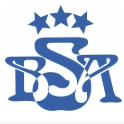
Baltic International Academy
-
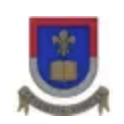
Daugavpils University
-
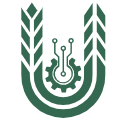
Latvia University of Life Sciences and Technologies
-
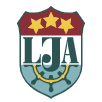
Latvian Maritime Academy
-
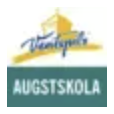
Ventspils University of Applied Sciences
-

Vidzeme University of Applied Sciences
-
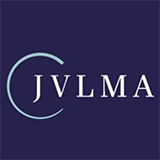
Jazepa Vitola Latvian Academy of Music
-
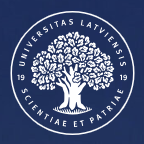
University of Latvia
-

Mesoamerican University
-

Istmo University
-

Mariano Galvez University of Guatemala
-

Regional University of Guatemala
-

Galileo University
-

Francisco Marroquín University
-

Rafael Landívar University
-

University of the Valley of Guatemala
-

University of San Carlos of Guatemala
-

Technological Institute of Tlaxcala Plateau
-

Golfo University
-

Technological University of South Sonora
-

Technological University of Huejotzingo
-

Tizimín Institute of Technology
-

Chilpancingo Institute of Technology

